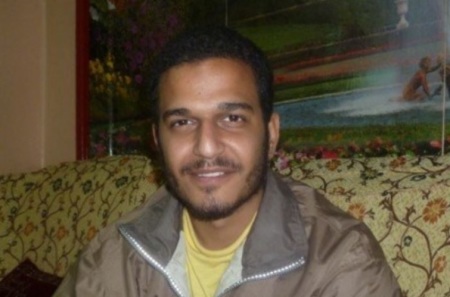Egypt extends detention of Coptic Christian activist, delays court hearing

Authorities in Egypt have again delayed the court hearing for a Coptic Christian activist jailed last November on “preposterous charges,” according to a persecution watchdog group.
It's been over two months since plainclothes police officers in Cairo raided the home of Christian activist Rami Kamil during the early hours of the morning. He was taken into custody and reportedly accused of joining a terror group as well as broadcasting false information.
However, advocates contend that Kamil was targeted because of his advocacy for human rights and religious freedom. Kamil is part of the Maspero Youth Union, an activist group fighting for equality and civil rights for the Coptic community. He has also written about the mistreatment suffered by Christians in Egypt.
Christian Solidarity Worldwide, a United Nations-recognized NGO that works in several countries to assist persecuted communities, reports that Kamil was slated to appear before the Supreme State Security Prosecution on Jan. 19.
But on the day of his hearing, Kamil’s lawyers waited several hours before being informed that the Ministry of Interior did not bring Kamil from Torra prison to the SSSP office for the hearing.
According to CSW, this is not the first time that the government ministry failed to transfer Kamil from the prison to the hearing.
Sources who spoke with the nonprofit agency believe that failure to bring Kamil to his scheduled hearings are an attempt to prolong his legal process as well as increase psychological pressure.
There have been several “procedural irregularities” in Kamil’s case. According to CSW, Kamil’s detention was extended by 15 days after an interrogation by prosecutors. Defense attorneys were informed that Kamil’s detention would be extended again even though he has not been formally charged with a crime.
It is not yet clear when the next hearing is scheduled.
“Mr. Kamil’s detention increasingly appears to be an effort to punish him for his work as a human rights defender,” CSW Chief Executive Mervyn Thomas said in a statement. “We call for his immediate and unconditional release, and for due process to be observed.”
SSSP officials are accused of preventing Kamil’s lawyers from gaining full access to documents related to their client’s case while the request for Kamil’s release remains unanswered.
“Mr. Kamil’s lawyers must be permitted to access every document and testimony related to this case to mount an appropriate defense,” Thomas added.
“The Egyptian government must ensure that it upholds its constitutional obligation under article 53 to ensure equality before the law without discrimination.”
Egypt ranks as the 16th worst country in the world when it comes to Christian persecution, according to Open Doors USA’s World Watch List.
According to the U.S.-based advocacy group Coptic Solidarity, political detentions in Egypt are common as the state “utilizes a variety of tools to censor free speech.”
Since President Abdel Fattah al-Sisi rose to power in 2014, the group reports that restrictions of free speech, free assembly and freedom of the press have been well documented.
“Crushing political dissent, imprisoning journalists and censoring the press are rarely discussed in relation to church building permits, discriminatory practices and violence against Copts in Egypt,” writes Amy Fallas of The Tahrir Institute for Middle East Policy.
“The arrest of a prominent Christian activist who works to document sectarian attacks alongside the targeting of an independent media outlet should challenge policymakers to consider issues of religious freedom in tandem with the protection of other civil liberties in Egypt.”
Although Sisi’s government has promoted initiatives to support religious freedom for Coptic Christians and fight radical Islamic extremism, Fallas fears that U.S. leaders have celebrated Sisi’s initiatives without assessing if “these efforts actually improved conditions for Christians in Egypt.”
“In response to the opening of the cathedral in January 2019, President Donald Trump interpreted the inauguration as Sisi’s effort to move ‘his country to a more inclusive future!’” she wrote. “Yet analysts in Egypt and abroad pointed to how this gesture obscured the fact that the Church Construction Law passed in 2016 was slow to approve construction and renovation permits for thousands of churches across the country.”
Although Egypt has legalized some churches, thousands of churches await government recognition.
As Open Doors USA notes, many Egyptian Christians face “substantial roadblocks” when it comes to living out their faith and that religious freedom for Christians is “not fully guaranteed.”
“Egyptian Christians are often victims of social exclusion and face constant discrimination in areas such as justice, education and basic social services,” Open Doors USA warned in a fact sheet. “In rural areas, Christian women have been targeted for abduction and forced marriage.”
Follow Samuel Smith on Twitter: @IamSamSmith
or Facebook: SamuelSmithCP





















